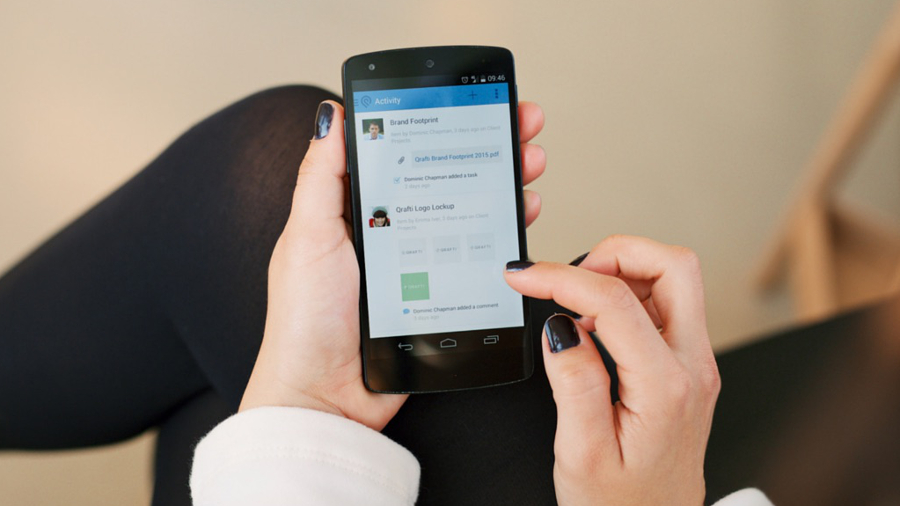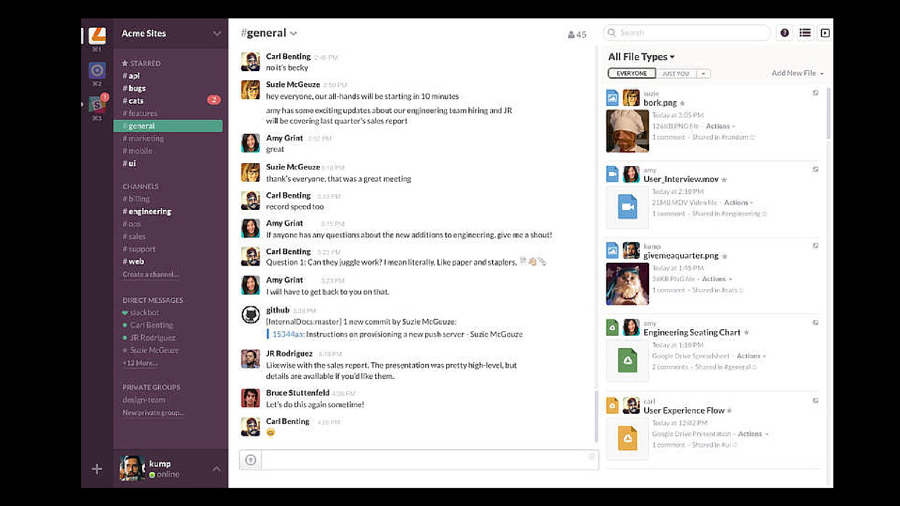Why the evolution of enterprise messaging is a big problem for Microsoft
Could the Office productivity suite ultimately be under threat?

Communication apps have been big business with consumers for a while. Facebook, with its Messenger app, now has over 800 million users and spent some $21 billion (around £15 billion, or AU$28 billion) on WhatsApp, which has over one billion users, while Snapchat is valued at around $15 billion (around £10.5 billion, or AU$20 billion) and has captured the younger millennial market – people under 24 – resoundingly.
Big businesses, however, have remained stuck with email. As anyone with an interest in enterprise technology is aware, emailing someone to chat – or have a conversation at a fast pace – is virtually impossible and the technology has stuck around because there was little else to replace it. Until now.
Microsoft provides the majority of big companies with technology, such as servers, and software, like Office, but has not been a prominent force in promoting other forms of communication beyond Outlook (email) and Yammer (instant messaging), the latter being the company it bought in 2012 and has done almost nothing with.
This gap in the market – which is just starting to become apparent as more and more people sign onto social networks and wonder why, exactly, talking to colleagues needs to be so hard – is being filled by younger, nimbler companies.

Picking up the Slack
Slack, for example, is under five years old, but has a valuation of over $4 billion (around £2.8 billion, or AU$5.3 billion) and hundreds of thousands of users who check back multiple times a day. HipChat, developed by Altassan, an enterprise company that just went public with much success, also seeks to banish email and has seen a big uptake by developers and engineers.
Facebook has also thrown its hat into the ring, launching Facebook at Work. The software, available for a per-user fee, looks just like Facebook but has increased chat and privacy controls as well as offering the ability to "follow," not "friend," people. The company isn't ready to talk about how successful the offering has been yet, but more and more companies are adopting the network.
The Financial Times, a well-respected business newspaper, recently launched a pilot programme for Facebook's software. "We hope Facebook at Work will help further foster a culture of collaboration and a sense of community across our global workforce," said Darcy Keller, the company's senior vice president of communications and marketing, implying that email does not do that.
Are you a pro? Subscribe to our newsletter
Sign up to the TechRadar Pro newsletter to get all the top news, opinion, features and guidance your business needs to succeed!
"I think Facebook lets us communicate, discuss and solve problems that other solutions, such as email, simply can't," said Kevin Hanley, the head of design at RBS, in an interview. "We love the fact that Facebook at Work gives you the ability to opt-in to forums and groups you want to be part of rather than being on the receiving end of email distribution lists that you want to opt out of."
Slack is following a similar path and has become a big hit with teams that need to communicate quickly and efficiently. It has become so popular, in fact, that families have started using it. "I sat with my parents, downloaded the mobile app for them, set up their account, and taught them how to use it so now they actually use it regularly," wrote Nicole Zhu, a software engineer describing her experience of using Slack with her family.
Max Slater-Robins has been writing about technology for nearly a decade at various outlets, covering the rise of the technology giants, trends in enterprise and SaaS companies, and much more besides. Originally from Suffolk, he currently lives in London and likes a good night out and walks in the countryside.